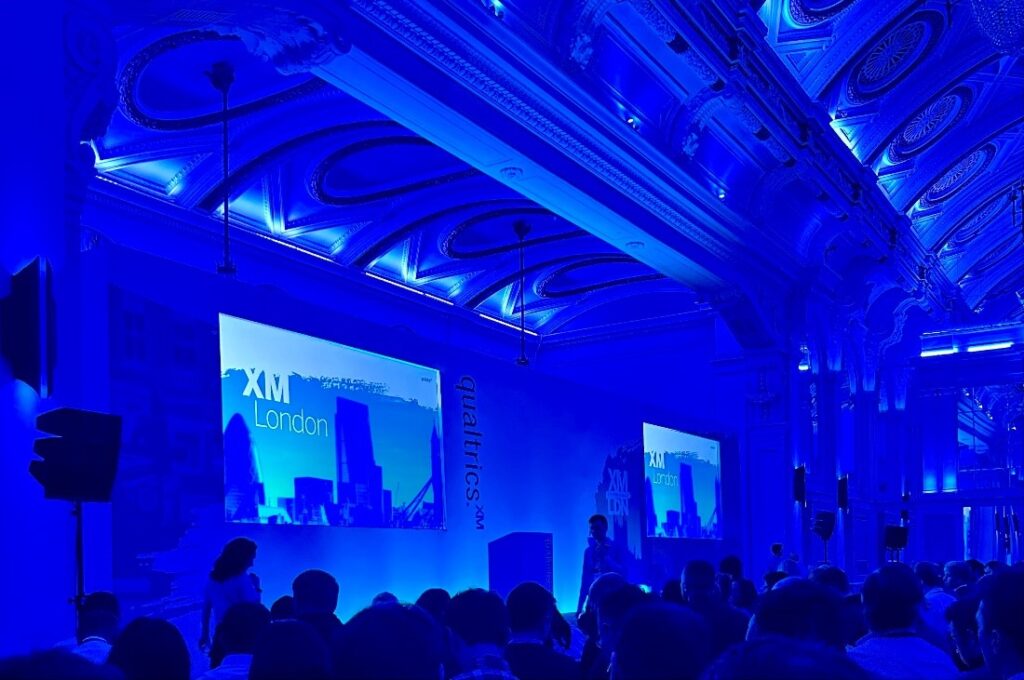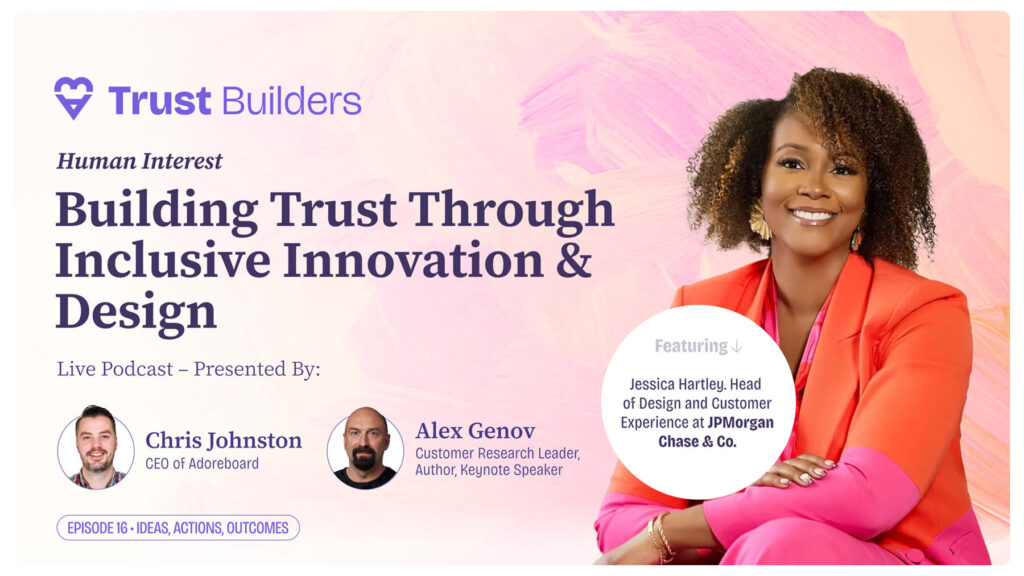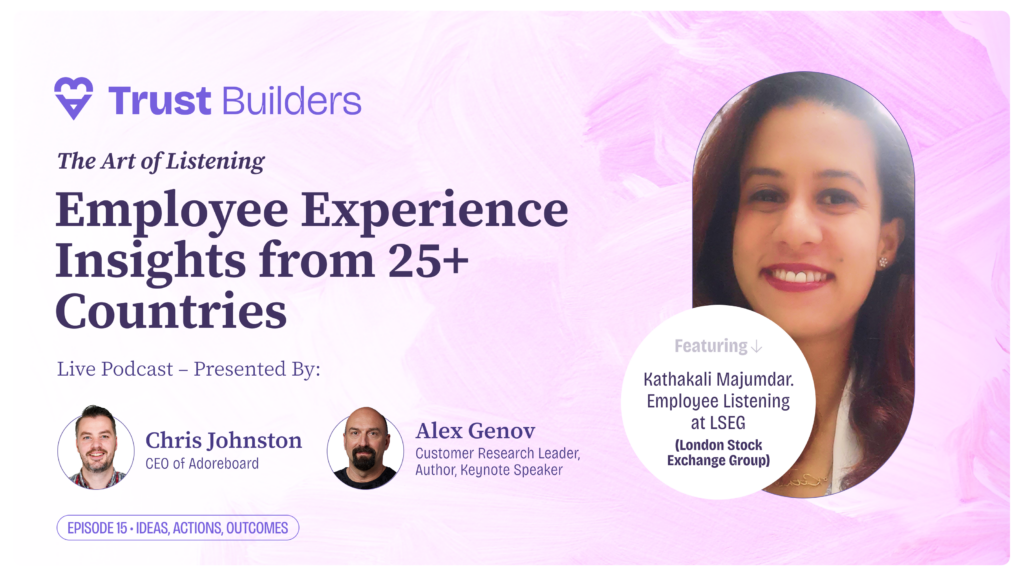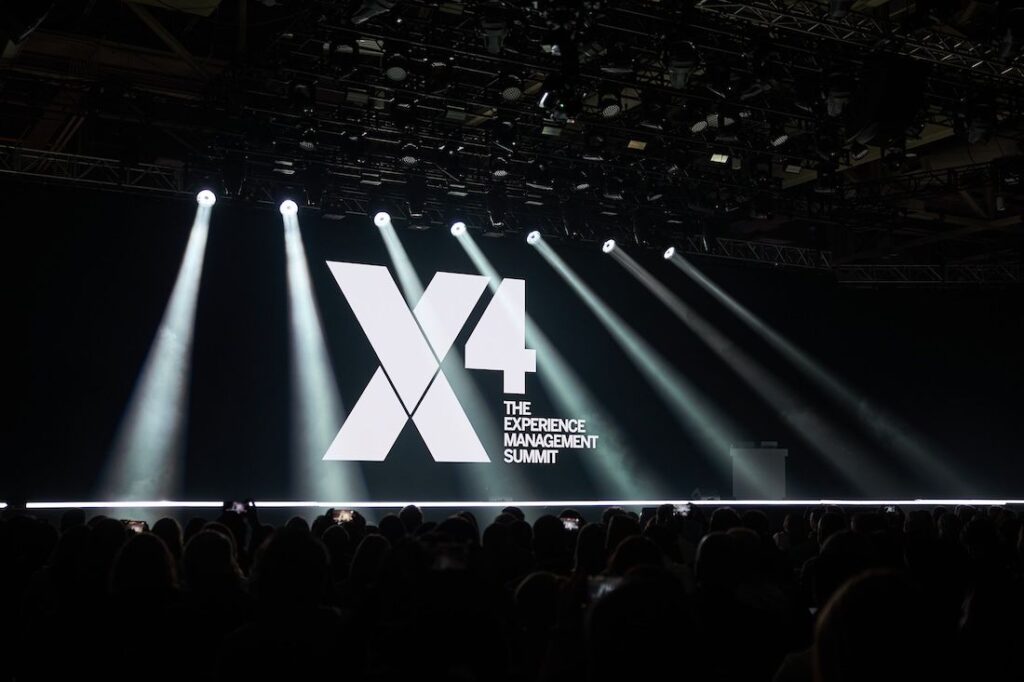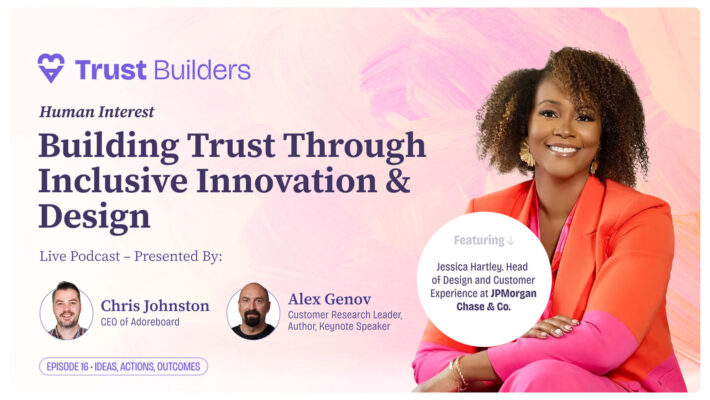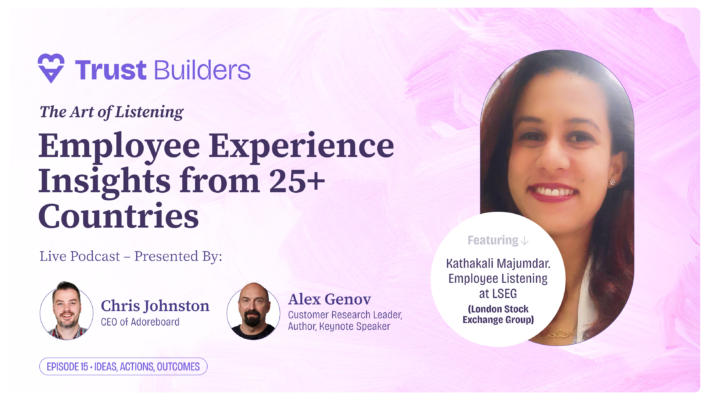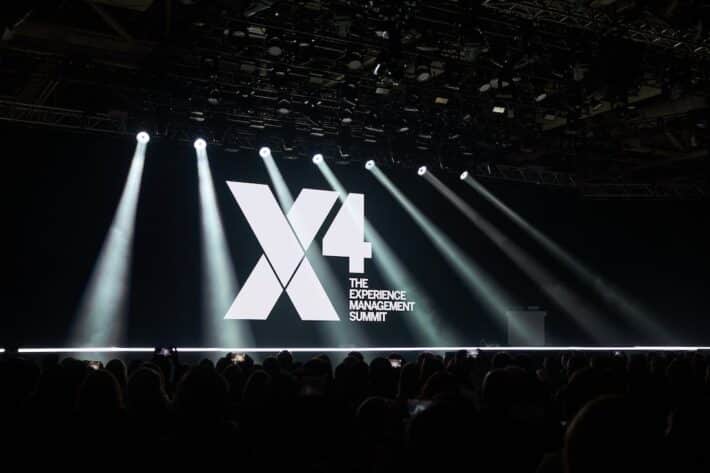We’re living in uncertain times where we are forced to focus on the here and now rather than looking towards the long term. From a global pandemic, to adjusting to new ways of working, to an economic crisis – companies are having to work harder now than ever before to create unforgettable experiences for both their employees and customers.
Last week, some of the Adoreboard team attended a Qualtrics Experience event in London. Partly as a celebration to mark 2 years of partnership with Qualtrics, and partly to learn and network.
At the event, we got an insight into how some of Europe’s biggest brands have been successful in keeping Experience Management at the heart of everything they do – even in challenging times. Here are some of the key takeaways we learnt.
Unilever: Understanding the voice of an employee as a leader is crucial
Increasing change means that leaders need the right tools to better understand their employees. Ana Richardson, Global Employee Insights Lead from Unilever expressed how it was ‘critical’ for leaders to have a gauge of how their people are doing – especially through times of uncertainty.
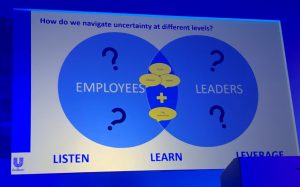
During an organisational restructure, Unilever made it their priority to get to the root cause of what caused employee uncertainty. They needed to find specific triggers of unhappiness, but also analyse feedback at scale – how did they do this?
1. Qualtrics text analysis is used to look at keywords coming through from employee feedback
2. They survey a statistically significant sample of staff
3. They run monthly surveys to ensure rapid feedback, and a larger annual survey of all staff.
Through collecting this data, Unilever can identify where employees lose their motivation, trust and enthusiasm and this helps leaders to figure out how they can reignite it. Ultimately, this enables them to take action and resolve these issues.
Qualtrics: Bad experiences are COSTLY
Did you know that bad experiences cost €4.7 trillion a year? That equates to 9.5% of global sales.
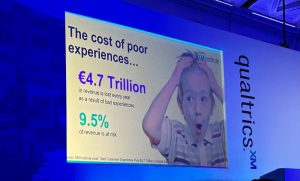
Bruce Tempkin, Head of Qualtrics XM Institute states that if we focus on Experience Management, we will see more growth and profits. To be exact, customers are 260% are more likely to buy more after a good experience and 370% are more likely to recommend a company.
The future is going to see a world of more demanding customers, more demanding employees, and shorter products life cycles, this was shown in research by Qualtrics among 1500 senior executives.
One thing is for certain – we are going to live through uncertainty. We must figure out a way not to avoid it or ignore it, but to embrace it and come up with a strategy to manage it. Bruce outlined three capabilities in order to aid this:
1 The ability to continuously learn what people are thinking and feeling
2. The ability to propagate insights and share relevant, actionable information across the organisation
3. The ability to rapidly adapt as the flow of actionable insights increases
Experience management is about creating better experiences and driving loyalty, but more importantly is the ability to spot change and react to it quickly in an environment that is uncertain. As Mike Tyson once said, “everybody has a plan until they get punched in the mouth.”
Lloyds Banking Group: XM can build authentic customer relationships
Mags Teale, Senior Product Owner at Lloyds Banking Group spoke about how they use Qualtrics XM Discover to understand why people are getting in contact and understand the wealth of reasons behind customer queries.
Lloyds use XM Discover to answer three questions:
– How do we deal with our customers?
– What does our customer need?
– Why did the customer journey work that way? What should we do differently?
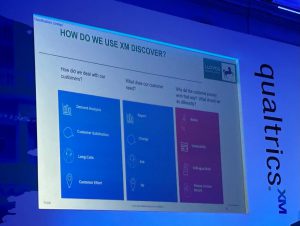
XM Discover pulls in both structured and unstructured data and helps better understand behaviours being demonstrated by customers. For Lloyds, this allows them to know how well they are treating their customers, where they are doing well and what they need to improve.
An eye-opening event
It was inspiring to hear from some of the world’s most trusted brands on how they are getting closer to their customers and employees.
There is a growing focus on the need to connect customer and employee experience measurement programmes. This can only be done through an integrated human experience framework, much like we have created with our customer Healthscope.
